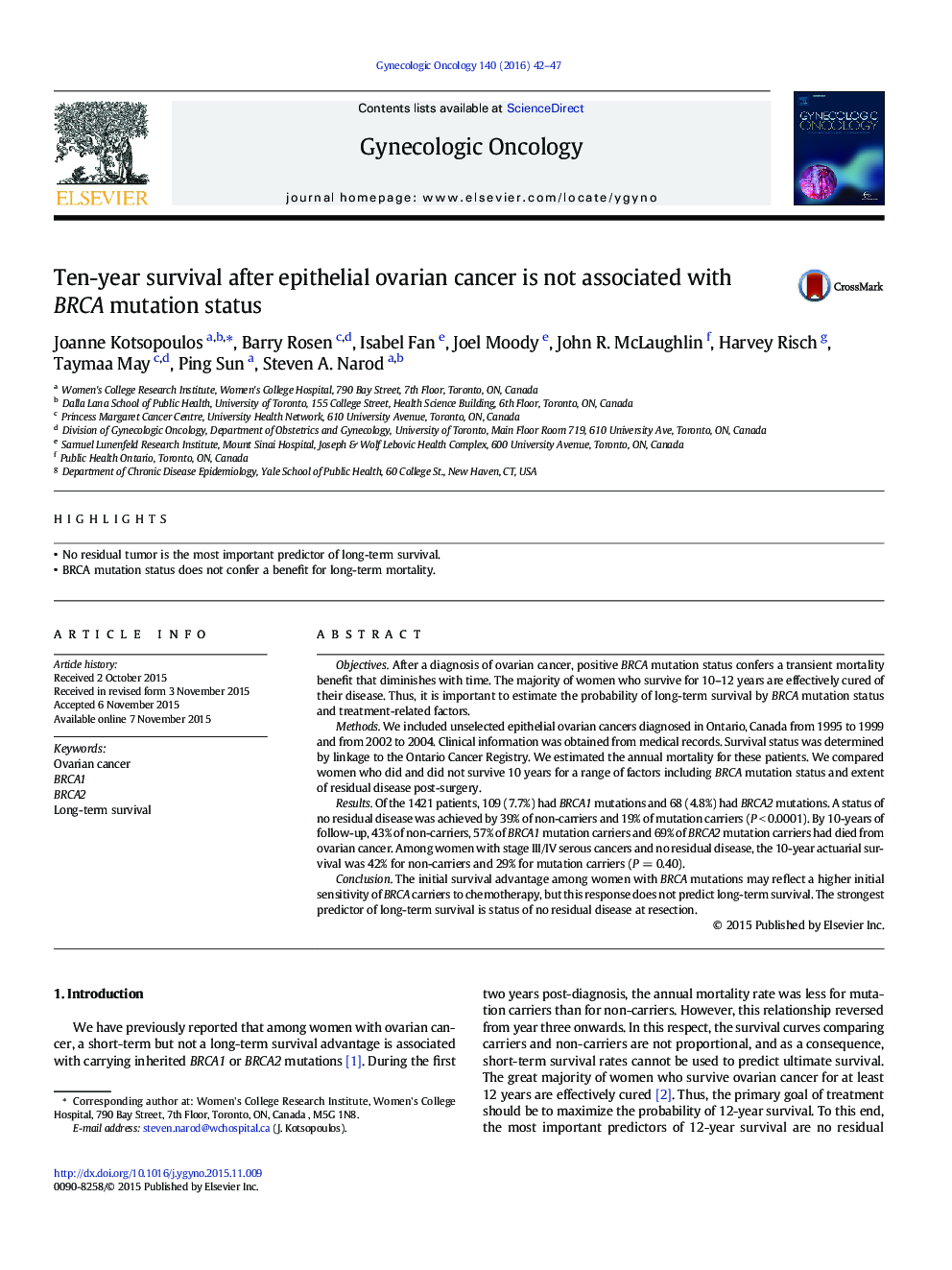| کد مقاله | کد نشریه | سال انتشار | مقاله انگلیسی | نسخه تمام متن |
|---|---|---|---|---|
| 3942509 | 1254007 | 2016 | 6 صفحه PDF | دانلود رایگان |

• No residual tumor is the most important predictor of long-term survival.
• BRCA mutation status does not confer a benefit for long-term mortality.
ObjectivesAfter a diagnosis of ovarian cancer, positive BRCA mutation status confers a transient mortality benefit that diminishes with time. The majority of women who survive for 10–12 years are effectively cured of their disease. Thus, it is important to estimate the probability of long-term survival by BRCA mutation status and treatment-related factors.MethodsWe included unselected epithelial ovarian cancers diagnosed in Ontario, Canada from 1995 to 1999 and from 2002 to 2004. Clinical information was obtained from medical records. Survival status was determined by linkage to the Ontario Cancer Registry. We estimated the annual mortality for these patients. We compared women who did and did not survive 10 years for a range of factors including BRCA mutation status and extent of residual disease post-surgery.ResultsOf the 1421 patients, 109 (7.7%) had BRCA1 mutations and 68 (4.8%) had BRCA2 mutations. A status of no residual disease was achieved by 39% of non-carriers and 19% of mutation carriers (P < 0.0001). By 10-years of follow-up, 43% of non-carriers, 57% of BRCA1 mutation carriers and 69% of BRCA2 mutation carriers had died from ovarian cancer. Among women with stage III/IV serous cancers and no residual disease, the 10-year actuarial survival was 42% for non-carriers and 29% for mutation carriers (P = 0.40).ConclusionThe initial survival advantage among women with BRCA mutations may reflect a higher initial sensitivity of BRCA carriers to chemotherapy, but this response does not predict long-term survival. The strongest predictor of long-term survival is status of no residual disease at resection.
Journal: Gynecologic Oncology - Volume 140, Issue 1, January 2016, Pages 42–47